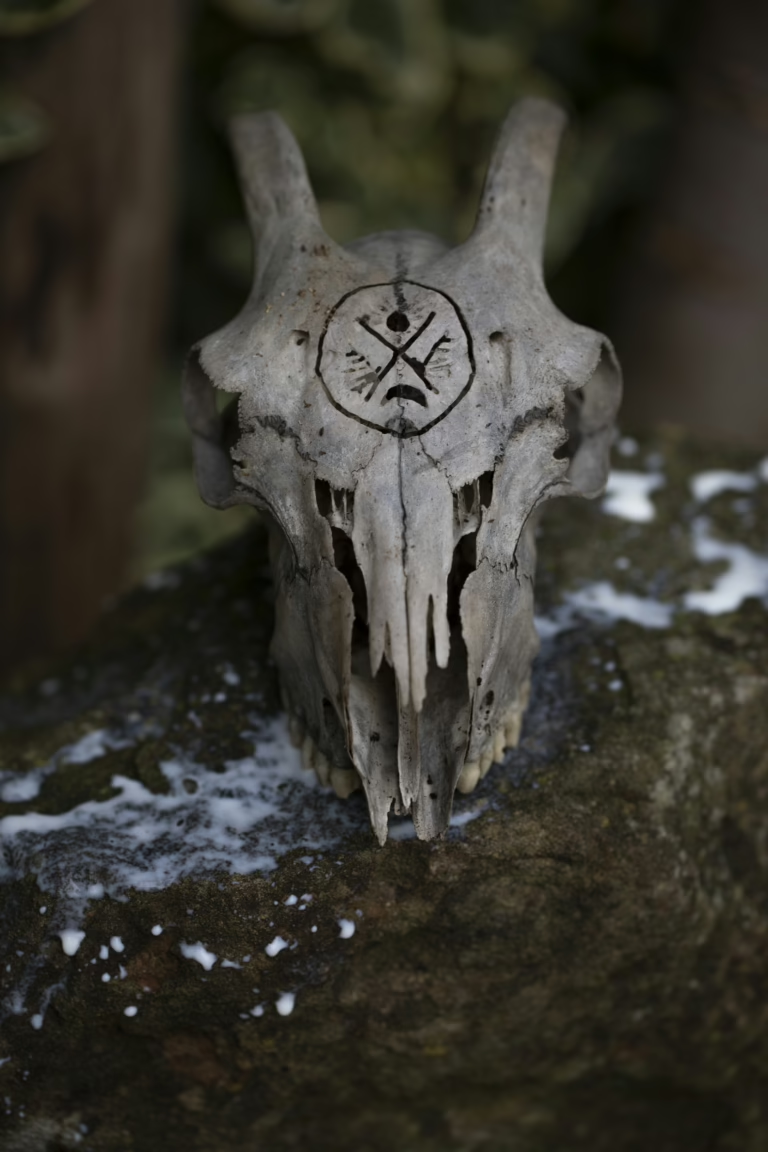
Newsletter Subscribe
Enter your email address below and subscribe to our newsletter

Enter your email address below and subscribe to our newsletter


Exploring Scottish Folk Practices and Traditions
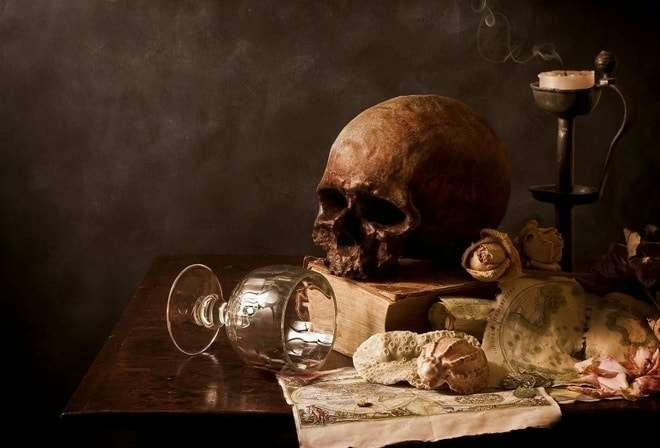
Dondering around the countryside, sauntering through glen, dirt track, woods and burns. Battling the wind and falling leaves. Passed graveyard and sacred stones. An idea presented itself. To write a series of posts embracing the theme of the season. The dead. There’s a lot of information kicking around already about the dead and their relationship to Scottish folk magic traditions and lore. Some populist and modern, others older or academic. Most of it focussed on the dead as a secondary or tertiary concern to Scottish life.
However, there is a different role the dead and the Sidhe/Sith play. A more important one. One that was centre stage to Scottish community life. There is a seldom explored thread of an idea that needs woven into a larger narrative. That of Scottish Folk magic and older practices relating to ancestors, the Sidhe and animism and not so much deity as some of us have come to view them. I have been given the task of capricious seamstress in this regard, rooting between rich veins of folk-lore, academic research and archaeology to weave old ideas into a new story and hypothesis I hope will add to the conversation around this area as the series progresses.
We must be mindful that the demographic of Scotland has fluctuated through time and there are distinct or merged influences that can be felt from Roman, Anglo-Saxon, Gaelic, Scots, Norse, ‘Celtic’ and others. Giving us distinct regional flavours. The writing draws on these different influences. Each has similarities in customs and approaches to the dead that can be found across all of Scotland. Exploring the role the dead played in Scottish folk magic is important. (I have written loosely about this before). Their influence is found in the belief structure, everyday life and the afterlife of the Scottish people.
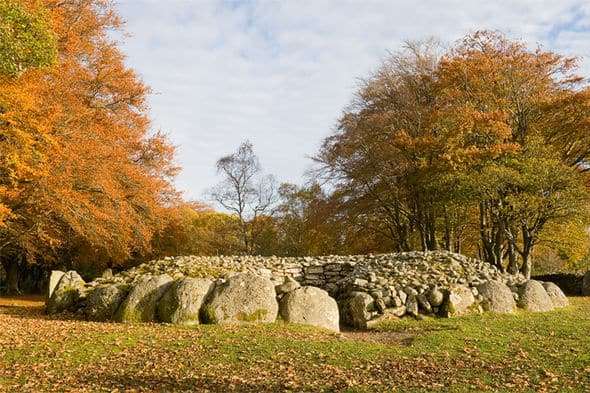
These ideas will be explored initially as part of a three-part series but one I hope will grow more extensive in time.
Part one explores the traditions associated with death and the dead in Scotland as they relate to ancestors and the sidhe/ Síth. Not only at the Quarter festival but also in Hearth and home.
Part two explores the dead’s as familiar spirit, how historically, familiars were the dead and acted as a gateway to the otherworld.
Part three of the series will finalise on Samhuinn and will focus on the different Scottish folk magic techniques from across the diaspora for contacting and speaking with the dead and exploring ‘second sight’. A suitable Samhuinn subject if there ever was.
However, before we embark on this exploration we need to do a little scene setting. An introduction is required to set up the paradigm and philosophy we will be exploring as it compares to popular thought. We need to disambiguate from more modern concepts. This will establish the frame we will weave the weft and warp of these concepts to.
I write the following comparison, not to cause issue to those who may believe or approach things differently, but to give a basic background to historical Scottish folk magic which includes the dead in their rightful place. It’s not my intention to offend but to challenge. I hope questioning your views doesn’t put you off but encourages you to explore more. Maybe even to think further and deeper about the whys and what for of your own tradition or approaches. This is an exploration of Scottish Folk magic wherein the tradition sits. Different traditions speak to different attitudes.
There is a lot of different ideas about how witchcraft/folk magic operates and works. Anyone who has a grounding in magical literature pre-modern millennial ‘witch’ renaissance (such as writings by Marian Green, Doreen Valiente and Draja Mickaharic) will know of the different approaches and schools of thinking behind how magic works. I don’t mean to duplicate this here but explore some of the more modern concepts I have come across.

Some practitioners see magic, witchcraft in particular, as a manipulation of energy emanating from a personal, geographical or objective ‘things’. Gemma Gary refers to this “nature energy” (I guess for want of a better phrase) as Sprowl, in her Traditional Cornish witchcraft writings. Others adorn themselves with Crystals for this or that effect. Building their “personal power” battery. They create circles to keep this energy contained and to build it up, by dancing, singing drumming etc. To finally release it to cause an effect, as in Wicca. Scottish folk magic doesn’t view magic as a mystical energy battery but there are elements of what might seem as natural magic on the surface.
Other schools of thought explore our Psi ability and call it magic. Some folk refer to this as the Clairs (such as clairvoyance, clairaudience etc.). Psychic ability, they argue, is innate in all of us. Scottish folk magic doesn’t approach ‘magic’ from this point of view. Some might suggest the Second sight is a manifestation of ‘psychic power’. I would argue it’s not. Remember, those with second sight (from the Scottish traditional perspective) are rare people and troubled ones at that, especially if we approach it from a standpoint of the folk literature. Second sight is usually gifted to a human from the sidhe/sith. They can grant it and as easily take it away. A good example of this in a folk story is found in “A Vision of the Dead” (from the Wonder Tales from Scottish Myth and Legend. Mackenzie, 1917). I would go one step further and say second sight is perhaps a gift from the dead to the living.
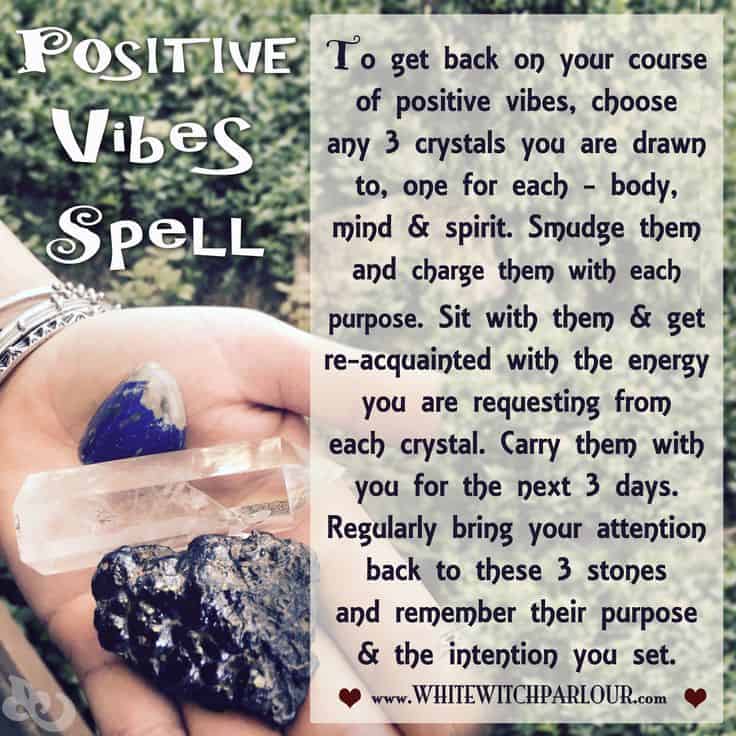
Magic can be intention to some. Dressing candles with oils, powder and plants bolstering the desired outcome. As the candle burns, your intention (or prayer for want of a better word) is released into the world. One must be clear and focussed to have what they want manifest. It’s all about the Secret. We are all extraordinary manifesting powerhouses of supernatural ability. We can change the world just by thinking amazing things. Scottish folk Magic, though latterly, has elements of prayer in some Ranns it does so in a different way to setting intention and is very different beast.
Some view magic power coming from celestial alignment of planets, days and hours (see 777, by Alistair Crowley for one of many examples). All which add a quality or power to workings that associate with planetary energies or deity like figures. Working through a table of correspondences and/or the doctrine of signatures they combine and work toward an effect, like magical chemistry. Through alchemy and astrology, western esoteric traditions and ceremonial magic have embraced this approach and modern witchcraft is not free of its influence. This is clearly demonstrated in the number of tools, etc. that each have a ceremonial point of use or correspondence in some traditions.
In the vein of Scottish Folk magic I would argue some ceremonial magicians are realising it’s actually spirits they are working with and not ‘energies’ or shifting psychology (Jake Stratton Kent’s writing is one you should look at in this regard, especially around his animist approach to Elelogap from the Grimoire Verum). You need to believe strongly in an almighty God to be a traditional ceremonial magician. There’s more prayers involved than any Christian, except the most devout perhaps, would say on any given day. Scottish folk magic isn’t about astrology and the planets. Though latter cunning folk in England absorbed this approach and some of the ceremonial magical ‘flair’. Scottish people of this time were less able to read and were less educated so these influences were lesser North of the border.
Others see witchcraft as self-development or a psychological improvement tool. Drawing on the writings of Jung, and others developing it into a nu-age self-improvement movement. Moon journals, following bliss and bringing in the warm glow of spirituality is unavoidable. Spirits have become the psychology of the unconscious. It’s about personal power and enlightenment. Everyone is powerful spiritual being of light who must overcome their shadow to be enlightened and wise. Scottish folk magic is about results and not focussed on aligning ones’ moral compass. Scottish folk magic isn’t about self-improvement and being a better person or even aligning with a god/dess/head and channelling this or that deity or developing gnostic enlightenment.

To reflect on the above, some view witchcraft as a religion. Folk magic an adjunct of this religion in operation or a secret depository of witch lore or an ancient witch cult (Margaret Murray has a lot to answer for). Some embrace an aesthetic dedication to their chosen power or powers. Fasting, and isolating and/or welcoming the ecstatic embrace of this power or another. They dedicate themselves to a cult of lord and lady or the Bucca or Odin or Cain or Lucifer or Lilith or Hecate or any number of Egyptian, Celtic, Norse, Abrahamic influences and ‘deity’ figures. All of which could form a backbone of belief for those inclined. Folk magic in this framework is a key to action. A key to call down your religions vengeance, enlightenment or healing. Giving us the operational ‘keys’ to call on the powers of these forgotten pagan or otherwise gods and goddesses or even the devil himself. Scottish folk magic is how a community related to spirits in its locale. Its operational. Folk magic practitioners don’t follow any religion. Or could quite possible follow them all. However, this approach to including folk magic into religion is part of the view of seeing things through a heavily religious influenced lens. I go on to discuss some of these ideas below.
Personally, I have little time for religion and the cults of personality that evolve around them. I view Scottish folk magic as having its roots in something more sacred (or some might so profane) than religion. It has little space for secrets and cults and graded orders. I mention this to display my bias openly.
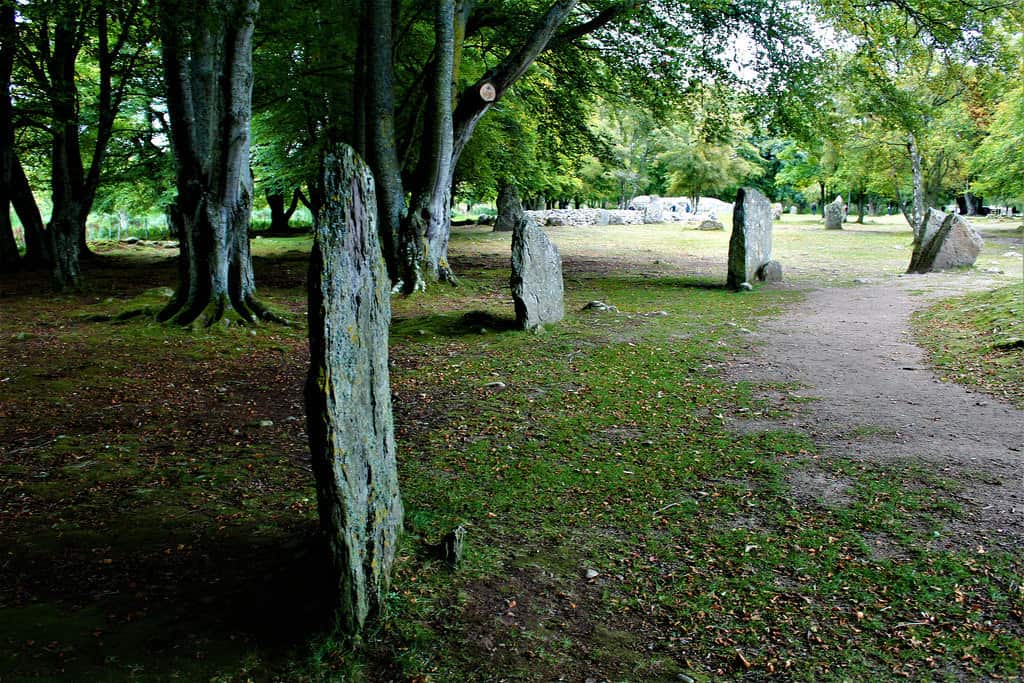
Scottish folk magic practitioners have different points of view. This series of writings will provide the foundation for. Their approach to folk magic is based on a simple idea with far-reaching impact. An idea I will argue that has its roots deeply intertwined in community, ancestry and the dead. That’s it. In this way, it’s an animist view and as simple and as complicated as that. (You can read more about my thoughts on this here) or here.
You don’t need a fancy title, robes, skull or sword. Folk magic is between you, the dead /spirits and the community you are in. It’s authentic and genuine. You don’t need to be an enlightened person to work folk magic. Folk magic doesn’t care how much of an asshole you are or whatever you shadow self is like. If you have a relationship with the dead/spirit you can work folk magic. You don’t need any intention to work folk magic (except a desire to get something done). All you need to do is demonstrated to the dead/spirits (you have a relationship with) in a clear way what you’d like to happen.
Martin Duffy in his book Effigy has discussed this approach, and suggested it as a premise leading to ‘pins in Poppets’ (In Scottish Gaelic the poppet is called a Corp Chre or Corp Chreadh, translating as a clay body or corpse). You are demonstrating what you want the spirits to do to that person by putting it in water to waste away or as you insert the pins/thorns. It’s as basic as “do this to this person for me”. The Rann (charm) used giving oral instruction.
Rann’s and charms of Scotland gives us other examples. They speak of emulating the actions of our ancestors or deities. You’re asking them to help. The power isn’t in the person. It’s from the dead/ancestors/spirits called on. This is not a channel for your personal energy. It’s also not something that your god(s) will to happen through divine intervention.
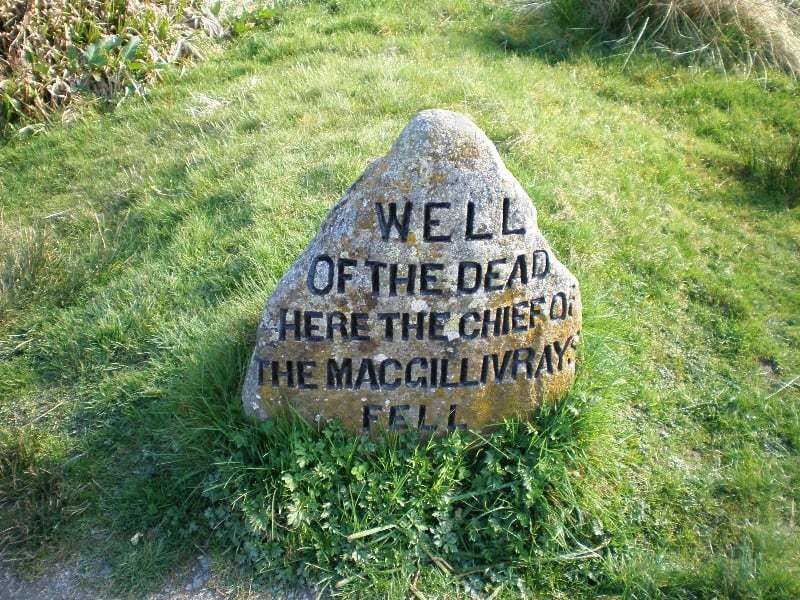
Folk practitioners are simply showing dead/spirits what they’d like them to do. For this it requires a relationship to the dead/spirit(s). This relationship, I would argue, is initially with the dead ancestors or the dead from the community. (This is an idea I’ll develop, demonstrating a possible vehicle for it). If it doesn’t work, it’s either because the spirits don’t want it to or you don’t have a relationship with them. Again, it’s as simple and as complicated as that.
Christian thinking invaded with an all-encompassing idea of divinity (that still saturates many people ideas (who might claim to be pagan, Witch as well as Christian) who use magic today). It removed our ancestor spirits and it became holy (or unholy) intervention. (See Tertullian, On the Soul or the writing of St Augustine, On the Care of the Dead for examples of the start of the Christian takeover of these ideas). This interpretatio Christiana affecting all future thinking, overlaying all future writing and muddles the trail.
I hope I have demonstrated the basic concepts I’ll be exploring. (i.e. it’s the dead who play a pivotal role to older Scottish Folk Magic before Christian overwriting). This is the paradigm shift fundamental to older forms of Scottish Folk magic.
If you’ve read this far and you’re still on-board, great. I tend to find discussing the above ideas annoys or offends a lot of people. Their head is in their own though. I guess these ideas are not for them. Other traditions will see things differently. That is fine. There is no one way or the highway but there is a clear approach to Historical Scottish folk magic if you aren’t following you aren’t doing.
The next part (part one) of the series will explore Scottish death customs, funery rites and apotropaic activities. It should allow a foundation to be built that will help explore the importance of the dead in Scotland but also prove the prominence they were given in folk magic and ‘belief’.
The following part two of the series will explore, by way of the scenic route, the ‘witches’ familiar. This will link to the Sidhe/Sith, discussing the evidence to support the proposition, in Scottish folk-lore the familiar spirit is the spirit of a dead person.
This series will culminate in part three. Where we will explore the writings from within the diaspora of Scotland and the different folk magic processes that existed to enlist the help of the dead and those with the sight to see them.
I love this. I find that I’ve been working folk magic all along without realizing the name of it. It seemed to be a good fit and the other styles too dramatic for me. A relationship with my ancestors and working with the elements feels right.
Thanks for the compliment Janet and hope you enjoy the rest of the writing as it “goes live” …
Thank you for this.
I have seen many approaches to folk magic, most of them mentioned here, but this one makes the most sense to me. Thanks very much for the clear and detailed articulation of your intent. I look forward to reading more.
Great Ellen, I hope you have been enjoying the follow up writing as much as i have enjoyed writing it.
That was interesting I would love to know how to work with my ancestors and working with the elements too
Glad you found it interesting, i hope you enjoy the next parts of they come in.
Truly thankful and to be fair impressed, as a Scot now living in Canada, who has studied and practiced with others in Scotland; I was beginning to feel somewhat isolated in my experiences of working with ancestral spirits. Your information has reinforced my reality and given more light to our heritage.
Great Jonathan, my intention is to hopefully start having more discussion with people in the wider “magic” community about these ideas and really just to get the ball rolling. Im happy it chimes with your own practices. Canada would be my logical choice after Scotland if i needed to move anywhere.
I am interested in your writing.
Many years having no trust in blind faith with religions- (no offense intended.)in many countries
Older ways appear to draw my attention as credible beyond simple interest and wish to find out more.
I hope not to offend by wishing to learn more yet can not commit to belief without knowledge.
Afraid i just dont the kirk as credible.
Thanks for letting me post
Im glad its been of interest to you Gordon, and thanks for sharing your thoughts.
Well done! The next time I am questioned on why I do what I do, I will happily direct them to your post.
Thanks pie I’m glad my writing has been a use to you.
Perfect. Just what I am looking for.
Great barb, I’m glad its useful for you.
This is a wonderful revealing piece of past perception of practice. My Isle relatives still do live this Way. I hope to aspire. Keep writing ?
I wish to not culturally appropriate. I don’t concern with religion just the methods of magick. My background is Scot and Welsh. Thank you for your work
Thanks Dale. Im glad you enjoy the writing. The subject of providence of culture is a very current debate for me.
Hi, just found you and hope not to lose you as I found your piece very interesting. Rosemary xxx
Yes. I agree with this.
What of the Scottish Diaspora? Do you think we can reach our ancestors here on colonized land? I also don’t want to appropriate the traditions of other people, but I wonder if our dead can hear me from across the sea.
I am so happy to have found your blog!!! Its incredibly refreshing, i have been practising this way all along. Thankyou!!!
welcome so nice to meet you 🙂
It’s a little different in life. We live on an island that has Scottish communities ( gaelic is spoken in some areas ) The word SIdhe is never used. It’s either little people or an indirect reference, like them or they. They’re actively avoided. The spirits of the dead are treated entirely differently. They inhabit cemeteries and buildings sometimes. People are open to the ones who they are related to . I can see where someone would think that the belief is that the fairy are the dead, but practically the common belief is that they are different spirits.
This could be a cultural thing since the folk here descend from the Hebrides and not the mainland.
Great article. You’re a gifted writer. And researcher. Proud of you!
I have searched far and wide for answers that settle with me. None have fully, and yet the gaps, the holes, they have come to paint a picture of exactly what I’m looking for. Your writing has given shape to the missing. To what I’ve known is right there in front of me. It is this. Literally this simple and complex. Thank you for putting it into words.
Thank you for this. Helping me realize that following my intuition to honor my ancestors, community, the elements, and tend to my home have all been folk magic and helping me to connect to my newfound Scottish roots.
Hi, thank you for writing. For my own learning, I’m curious about what source material/scholars/practitioners you have studied from? I’m seeking mentors and mutuals, and I’d be very interested to read what you have read. Thanks!
Thanks for reading along – a lot of the sources are reference in the writing hope thats helpful!